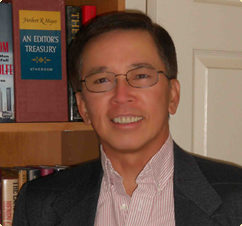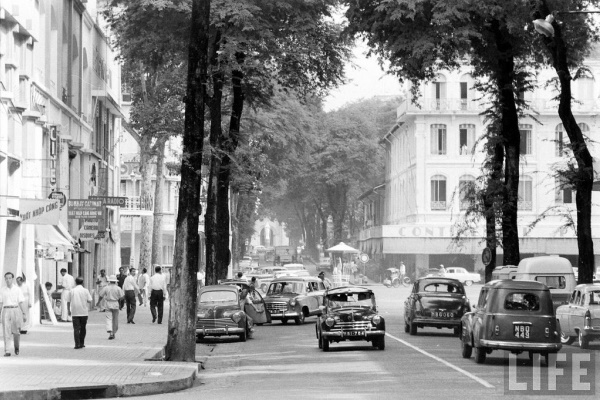Forty years ago, on the last day of April 1975, as the free world stood by and watched in disbelief, Saigon succumbed to the communist North Vietnamese, marking the end of the Vietnam War. Every year since, when April comes around, millions of people who had lived through those tumultuous times—veterans who had fought during the war and South Vietnamese families who had left their homeland in the aftermath—remember the somber occasion.
People are all different, and they commemorate such a momentous event in their lives differently. Some like to gather in public places and show solidarity; others choose to remember quietly in private, while yet others would rather forget altogether. And then sometimes one doesn’t really get a choice. Like myself, even without trying, I remember—like it was yesterday.
I wasn’t in Saigon during those chaotic days, having just left home barely six months before to come here to go to college. But I still recall staying glued to the tube, watching in horror the incredible events unfold on the small screen and huddling with my compatriots on campus for mutual support. It was all happening right around spring break, and while other students were rushing through their final exams and heading for sunny Florida beaches, my fellow Vietnamese students and I were out on the campus greens trying to raise money for war refugees back at home. None of us had the slightest idea what the future had in store for our people and our families in Vietnam.
Every April, without dwelling on those sad memories, I still remember. In the nooks and crannies of my mind, the images remain vivid. Someone recently suggested that I watch the documentary “Last Days in Vietnam.” It was very well done, even nominated for some big awards, I was told. So I did. About two minutes into it, I had to stop. The emotions were just overwhelming, and surprisingly fresh still. Even 40 years after.
I guess it was the same pent-up emotions that had driven me to write my book and publish it, to tell the stories of people on both sides of the ocean whose lives had been touched and forever changed by the war. It was my way of bearing witness to this chapter in history to which I still belong. And so, to commemorate the event this April I thought I would do something different: I will share those stories in person—with book clubs, libraries and other organizations, or with anybody who might be inclined to listen. Like most of you, I am a reluctant public speaker at best. But if that’s what it takes to get the stories heard, so be it.
So there, I’ve started it right here. Thank you for letting me share some of my thoughts with you. By the way, the black-and-white picture shown above was from Life Magazine, of downtown Saigon circa 1961. A world long since vanished under the Mulberry Sea.



My Dear Friend,
Although I cannot feel the saddness of your loss of the homeland as you remember it, I truly hope you have found new happiness since you’ve come to America. Your new home away from home. As it is said, you can never go back and the future is yet undefined. However, the here and now is to be cherished and all you encounter are, in a sense, your new family. SInce meeting you, Chinh, I must say that I’ve cherished your friendship and I am more than honored and blessed to call you part of my family…my brother.
John
Big brother John, I’m still amazed you didn’t disown me after I scared the daylight out of you with my driving in Texas! I can’t tell you just how much I appreciate your friendship and support. You’re among the many great people I’ve had the good fortune to meet in this adopted homeland. Thank you so much, dear friend!
I can’t tell you just how much I appreciate your friendship and support. You’re among the many great people I’ve had the good fortune to meet in this adopted homeland. Thank you so much, dear friend!
CL- what a beautiful beginning to your blog- I loved it and the picture. What an incredible adventure your life has been. And Mulberry Field is wonderful.
Hi Judy. It is great reward to me to have such wonderful and supportive friends as yourself. Best wishes.
Hi, CL. As I read this posting I was, as always, fascinated by your memories of the era. I too was glued to the TV news at the US withdrawal. I had (and still have) powerful mixed feelings. I was relieved to see an end to the war but ashamed by the cut-and-run by nature of the thing. It fell far short of “peace with honor.” But was the the hate and death and horror of the war more honorable?
Thanks for stopping by, Guy. I know what you mean. War is never the ideal solution, but unfortunately it is unavoidable sometimes. Just think of what happened after this war ended the way it did—the unspeakable tragedies in the killing fields of Cambodia and on the South China Sea, for years afterwards. So sad.
CL
I loved loved loved this book!! You really took me there – so descriptive and realistic – so much so that am planning a trip there this Fall
Thank you so much!
AJP
Thank you, AJP. I’m so glad to be able to share the book with you and that you enjoyed it. Have a wonderful trip, and take lots of pictures.